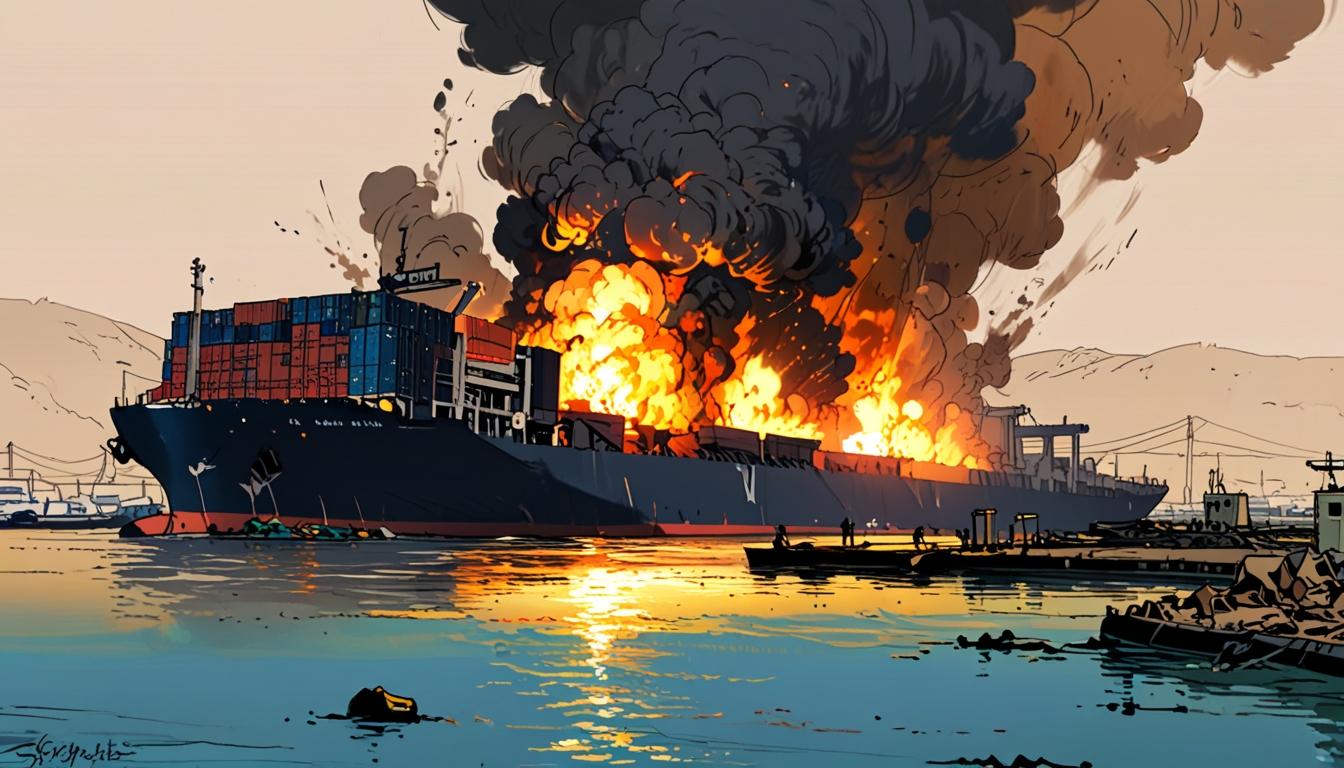A devastating explosion at Iran’s largest commercial port, Shahid Rajaee, has resulted in at least 40 fatalities and over 1,000 injuries, sparking a wave of mourning and anger across the country. The incident occurred on Saturday morning, with thick black smoke and ongoing fires continuing to engulf the area well into Sunday. The blast caused shockwaves felt up to 50 kilometres from the port, highlighting the severity of the disaster.
Following the explosion, a significant emergency response was mobilised nationwide. Many Iranians rushed to hospitals to donate blood as part of the relief efforts. The health ministry has advised residents in nearby towns and cities to stay indoors "until further notice" and wear protective clothing due to the presence of toxic chemicals lingering in the atmosphere from the fires.
In Bandar Abbas, a southern city housing the Iranian Navy’s main base near the port, authorities took the rare step of closing all schools and offices on Sunday. This was intended to allow emergency services and officials to concentrate on managing the crisis, according to state television reports. A local festival near Shahid Rajaee port, originally planned as a celebration, was transformed into a sombre event for commemorating the victims and offering prayers for those injured.
The Iranian government declared a national day of mourning on Monday, along with an additional two days of mourning specifically in Hormozgan province, where the port is located. The explosion has not only caused physical damage—with residents reporting the blast’s effects from considerable distances—but it has also ignited a debate regarding the causes and management of the incident.
According to Ambrey Intelligence, a private maritime risk consultancy, intense fires were observed spreading between containers prior to the explosion. The company suggested these fires resulted from the mishandling of a shipment containing solid fuel intended for use in Iranian ballistic missiles. They noted that a shipment of sodium perchlorate rocket fuel, a key component in solid missile fuel, had been discharged at the port by an Iran-flagged vessel in March 2025.
The New York Times quoted an anonymous source connected to Iran’s Islamic Revolutionary Guard Corps who identified sodium perchlorate as the explosive material involved. These reports have fueled speculation on social media and among citizens questioning whether the Iranian military had stored recently imported rocket fuel from China at the port—a claim that an army spokesman has categorically denied.
Many Iranians have expressed anger and frustration towards authorities, questioning how a large quantity of such highly flammable material could have been left at the port without proper safety precautions. Iranian President Masoud Pezeshkian visited the blast site on Sunday. Speaking there, he said, "We have come to see first-hand if there is anything or any issue that the government can follow up on." Earlier in the weekend, Pezeshkian had appointed the interior minister to lead an official investigation into the causes of the explosion.
Meanwhile, Reza Talaei-Nik, a spokesman for the defence ministry, stated on state television that "there has been no imported or exported cargo for military fuel or military use in the area." The port's customs office released a statement through state TV suggesting that the explosion likely originated from a fire in the hazardous and chemical materials storage depot.
Concerns have also been raised about the potential economic impact of the explosion, as Shahid Rajaee port handles approximately 80% of Iran’s imports. Initial warnings from authorities indicated possible short-term food shortages due to the port being out of operation. However, these concerns were subsequently somewhat tempered, with officials stating that only a portion of the port was affected and that other sections continue to function normally.
Images from Iran’s Tasnim news agency, reported by AFP, depicted helicopters flying through smoke-filled skies to douse flames with water, while firefighters worked among damaged and blackened cargo containers and recovered bodies from the site. Roads leading to the disaster area have been closed to control access amid ongoing emergency processes.
The BBC is reporting on these unfolding developments, providing continuous updates as investigations and recovery efforts progress in the wake of this tragic explosion at one of Iran's critical commercial hubs.
Source: Noah Wire Services
